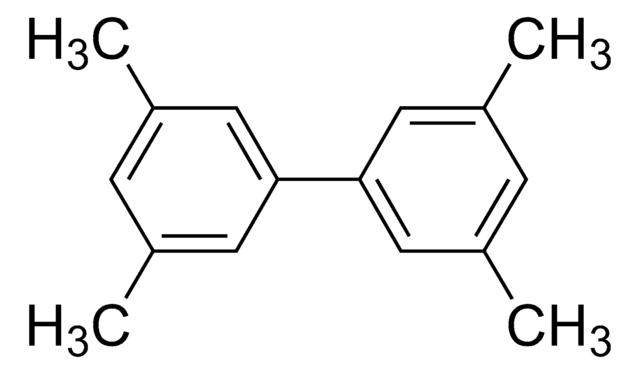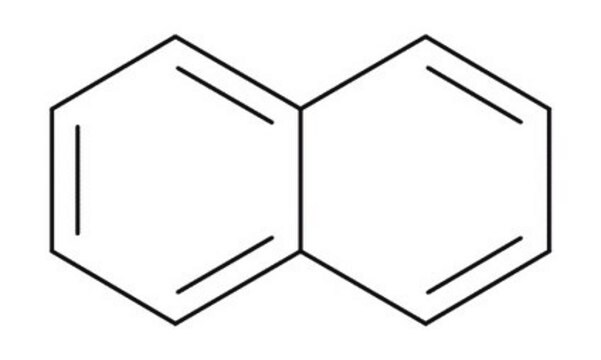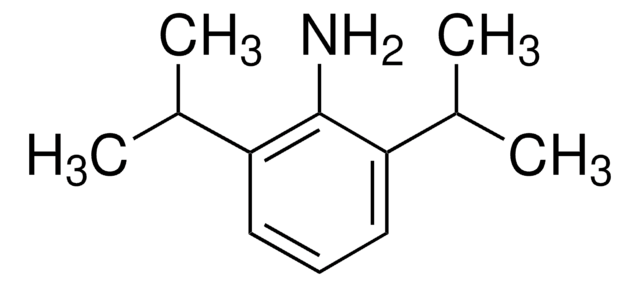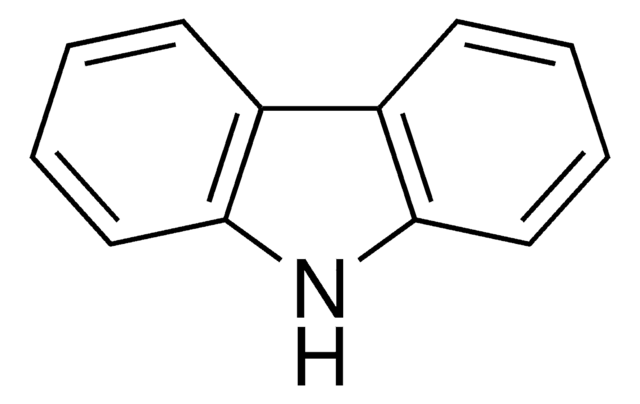すべての画像(1)
About This Item
実験式(ヒル表記法):
C16H20
CAS番号:
分子量:
212.33
EC Number:
MDL番号:
UNSPSCコード:
12352200
PubChem Substance ID:
おすすめの製品
形状
solid
SMILES記法
CC(C)c1ccc2cc(ccc2c1)C(C)C
InChI
1S/C16H20/c1-11(2)13-5-7-16-10-14(12(3)4)6-8-15(16)9-13/h5-12H,1-4H3
InChI Key
GWLLTEXUIOFAFE-UHFFFAOYSA-N
その他情報
Sigma-Aldrichは、ユニークな化合物コレクションの一部として、基礎研究用途で本製品を提供しています。弊社ではこの製品を分析しておりません。必要に応じて、ご使用前にお客様ご自身で物質の同定と純度を確認することをお勧めします。また、ご購入後の返品や交換は致しかねます。
シグナルワード
Warning
危険有害性情報
危険有害性の分類
Acute Tox. 4 Oral - Aquatic Acute 1 - Aquatic Chronic 1
保管分類コード
11 - Combustible Solids
WGK
WGK 3
引火点(°F)
284.0 °F - closed cup
引火点(℃)
140.00 °C - closed cup
適用法令
試験研究用途を考慮した関連法令を主に挙げております。化学物質以外については、一部の情報のみ提供しています。 製品を安全かつ合法的に使用することは、使用者の義務です。最新情報により修正される場合があります。WEBの反映には時間を要することがあるため、適宜SDSをご参照ください。
PRTR
第一種指定化学物質
Jan Code
CDS003812-250MG:
AMS003812-250MG:
試験成績書(COA)
製品のロット番号・バッチ番号を入力して、試験成績書(COA) を検索できます。ロット番号・バッチ番号は、製品ラベルに「Lot」または「Batch」に続いて記載されています。
Eelco N Pieke et al.
Analytica chimica acta, 975, 30-41 (2017-05-30)
Risk assessment of exposure to chemicals from food and other sources rely on quantitative information of the occurrence of these chemicals. As screening analysis is increasingly used, a strategy to semi-quantify unknown or untargeted analytes is required. A proof of
K Van Den Houwe et al.
Food additives & contaminants. Part A, Chemistry, analysis, control, exposure & risk assessment, 34(7), 1261-1269 (2017-05-18)
Contaminants in food packaging are a challenge of our time since the packaging material itself has been found to represent a source of food contamination through the migration of substances from it. Before first use, packaging materials destined for the
Coraline Simon et al.
Toxicology in vitro : an international journal published in association with BIBRA, 37, 121-133 (2016-10-19)
Endocrine activity of 65 compounds migrating from polycarbonate replacement plastic baby bottles was assessed using in vitro cell based assays (reporter gene assays) involving 7 nuclear receptors, i.e. human steroid hormones receptors (oestrogen, androgen, progesterone and glucocorticoid receptors), human thyroid
Matthias Onghena et al.
Food additives & contaminants. Part A, Chemistry, analysis, control, exposure & risk assessment, 31(12), 2090-2102 (2014-11-20)
In 2011, the European Union prohibited the production of polycarbonate (PC) baby bottles due to the toxic effects of the PC monomer bisphenol-A. Therefore, baby bottles made of alternative materials, e.g. polypropylene (PP) or polyethersulphone (PES), are currently marketed. The
ライフサイエンス、有機合成、材料科学、クロマトグラフィー、分析など、あらゆる分野の研究に経験のあるメンバーがおります。.
製品に関するお問い合わせはこちら(テクニカルサービス)








